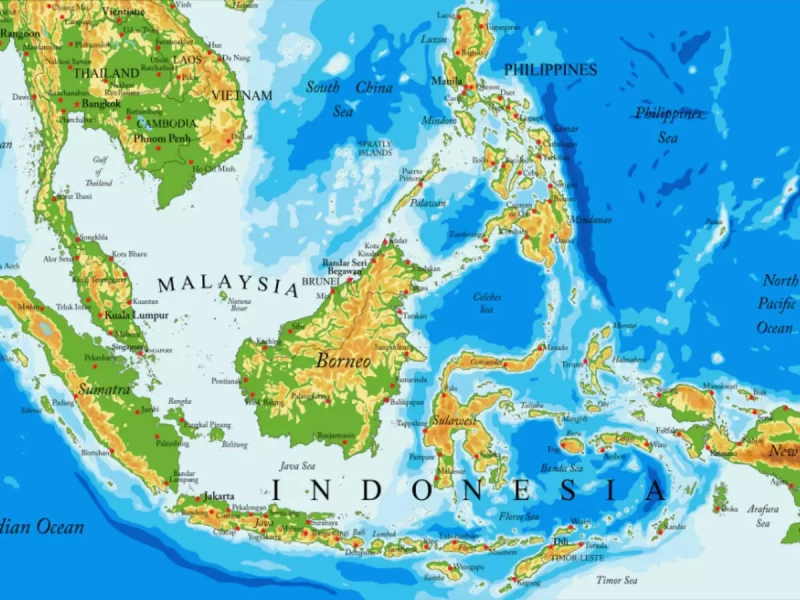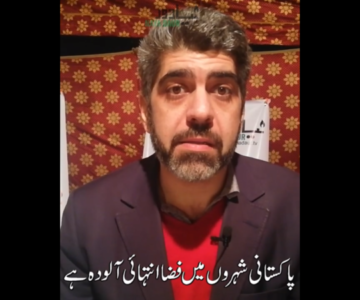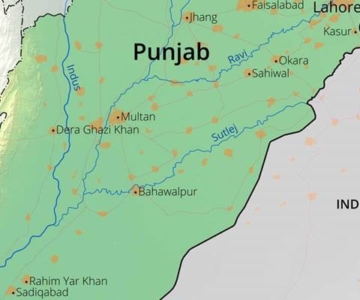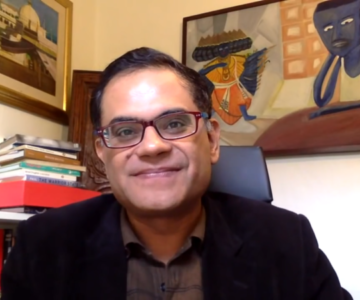Rather than harping on the divisive rhetoric of tribe, sect and political persuasion, we have a theological and teleological imperative to green our society
In a remote part of Central Java, Indonesia’s most populous island, there is a rather unusual form of environmentalism taking root. Shadowed by the great Merapi volcano and surrounded by fertile fields of rice and sugarcane, a small school is graduating environmentalists whose commitment to the earth is not based on Western conservation texts but rather predicated in values derived from Islam. The head of the school, Nasruddin Anshari, frequently uses the refrain “one earth, for all”, just as much as he does the usual Islamic invocation of Allah-u Akbar (God is Great).
Indonesia’s pesantren (the local word for a madrassa or religious school) have come under great scrutiny in recent years due to their perceived connections to terrorist incidents such as the Bali bombings in 2005. Even US presidential hopeful Barack Obama felt obliged to distance himself from his childhood days in Indonesia because of a rumour that he too had attended a pesantren, since both his father and stepfather were Muslims. Yet the transformation taking place at Pesantren Lingkungan Giri Ilmu would certainly please most constituencies in the West. Children from the village of Bantul are learning about the importance of preserving their ecosystem as a mark of worshipping God. The tenacity of Islamic religious doctrines that often manifests itself in uncompromising stances on political conflicts is being channelled more positively towards environmental ethics.
In his latest book The Creation, eminent Harvard ecologist E O Wilson writes an open letter to the clergy in which he urges theologians to unite on environmental causes: “The defence of living Nature is a universal value. It doesn’t rise from nor does it promote any religious or ideological dogma. Rather, it serves without discrimination the interests of all humanity.” It seems as though Wilson’s plea is at least being heard in Indonesia — one of the world’s highest biodiversity regions.
To further develop this trend and to link environmental education to a larger agenda of conflict resolution, the United Nations mandated University for Peace held a week-long workshop on peace education in an Islamic context in November 2007. The setting for the workshop was Gadgah Mada University in Yogyakarta, not far from our eco-friendly pesantren. Scholars from numerous Muslim countries gathered to consider various dimensions of peace education and to develop lesson plans for implementation in Islamic schools. I was invited to develop specific ideas on how to use environmental issues within an Islamic context as an instrumental means of peace-building.
It was fairly easy to convince the delegates that the advent of Islam as an organised religion occurred in the desert environment of Arabia, and hence there was considerable attention paid to ecological concerns within Islamic ethics. While Islamic theology is not pantheistic, and shares many of the anthropocentric attributes of other Abrahamic faiths, there is a reverence of nature that stems from essential pragmatism within the faith. Due to resource scarcity, early Muslims realised that long-term development was only possible within ecological constraints which were shared by all of humanity. Thus, the universality of environmental resources provides a valuable template for peace-building that is realised in Islam.
Nevertheless, there are several systemic challenges to the realisation of a sustainable development paradigm within contemporary Islam, largely due to institutional inertia and a reluctance of ulema to engage contemporary issues. First, the Islamic belief of humans as Ashraful Makhloqaat (the most superior creation) poses serious challenges to inculcating environmental ethics, particularly with reference to animal rights. However, this can be countered by considering numerous injunctions about the great responsibility that comes with the status of being a “superior creation”. The concept of khalifa (vicegerent) can be considered an antidote to this concept since the role of a vicegerent is to act as a steward for the land and for all creation.
Second, the Islamic focus on the after-life rather than the present has also led many Muslims to consider environmental and developmental challenges as trivial compared to the hereafter. This has led to a sense of complacence and fatalism about our developmental predicament, since it is deemed the will of God. I felt this strong apathy whilst conducting research on the Islamic schools of Pakistan three years ago. Yet this fatalism is no longer pervasive among the devoutly practicing Muslims of Indonesia. The Islamic religious schools in the world’s largest Muslim country are realising that the most profound act of worship is to conserve natural resources on which all life depends. Just as suicide is forbidden in Islam because of a deep respect for the sanctity of life, so too is the deliberate desecration of the life support systems that make our planet so unique.
Even beyond Indonesia there are several promising signs that narratives of policy makers are changing positively. The Islamic Foundation for Ecology and Environmental Science, based in Birmingham, UK, is developing numerous programmes for religious institutions in Muslim countries around the world. Even development donors are beginning to take note of such efforts. In late 2006, the US Agency for International Development launched an environmental education program in Tanzania in partnership with NGOs such as the Baraza Kuu la Waislamu Tanzania (BAKWATA) and the Jane Goodall Institute. The “Roots & Shoots” programme will target 12,650 primary school students and 12,650 madrassa school students. As part of this effort, two hundred and twenty primary school teachers and 220 madrassa teachers will be trained on coastal and marine ecosystem issues.
Even hard-line states like Iran are taking positive steps in this regard and are quite proud of the fact that the highly successful Ramsar convention on Wetland Protection takes its name from the Iranian city where it was signed in 1971. Despite several subsequent years of conflict and environmental indifference, in 2004 the Iranian government organised an international conference on environmental security to which Americans were also invited and where a strong case was made for using environmental conservation for peace-building. The former Iranian President Mohammad Khatami stated during his tenure that “pollution poses an even greater threat than war and suggested that the fight to preserve the environment might be the most positive issue for bringing the Gulf neighbours together”.
The usually profligate Gulf States are also catching on to the trend and trying to reduce their huge ecological footprint — albeit with modest results so far. Abu Dhabi has committed itself to establish the world’s first carbon neutral city of 40,000 residents by 2012. Masdar city (which means the source in Arabic) will have at its core an educational institution and numerous environmental technology firms to support a sustainable economy.
If the energy of Islamic scholars and their madrassas as well as our development tsars can be collectively channelled towards such positive acts of social and environmental activism, perhaps we can begin to appreciate our common humanity. Rather than harping on the divisive rhetoric of tribe, sect and political persuasion, we have a theological and teleological imperative to “green our society”.
Dr Saleem H Ali is associate dean for graduate education at the University of Vermont’s Rubenstein School of Environment. He is the editor of the new book Peace Parks: Conservation and Conflict Resolution (MIT Press) and can be contacted at saleem@alum.mit.edu



